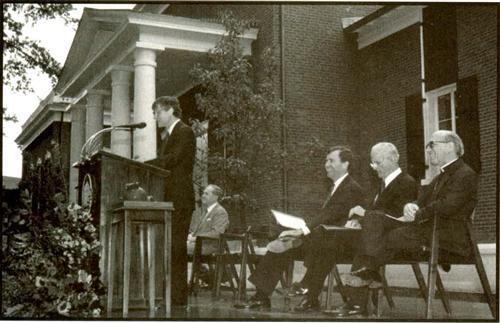Sign up for the Family Tree Newsletter Plus, you’ll receive our 10 Essential Genealogy Research Forms PDF as a special thank you!
Get Your Free Genealogy Forms
"*" indicates required fields

Regional centers of history and culture, along with online encyclopedias for each state, will help encourage a sense of regional belonging and understanding, according to NEH spokesman Jim Turner. “States have histories, pasts, local folklore…. These are the things that can be nurtured, celebrated and made available” through the proposed centers and Web sites, he says.
Right now, the centers are in the early planning stages. The plan is to build a nationwide network of 10 Regional Humanities Centers that “will highlight that special sense of place which connects us to where we grew up or to where we live now,” says NEH Chairman William Ferris. They will focus on the history and people of the Pacific, Southwest, Rocky Mountains, Plains, Upper Mississippi Valley, Central, Deep South, South Atlantic, Mid-Atlantic and New England regions.
Ferris, a former director of the Center for the Study of Southern Culture <www.olemiss.edu/depts/south/>, hopes the same concept of “preserving and disseminating knowledge about the South that might otherwise be lost” will succeed in other regions across the country. Universities are now drawing up plans for their regions’ centers; by December, the NEH will choose which university should host each one. Once developed, the centers will offer academic programs, summer seminars for teachers, publications, support for documentary filmmakers and genealogical information.
Meanwhile, states are planning to create their own online encyclopedias of cultural heritage. The NEH awarded grants to 15 states and two US territories to begin developing Web sites similar to the Handbook of Texas Online <www.tsha.utexas.edu/handbook/online/>. That is, a portal of articles and images that educate, inform and entertain anyone interested in the state’s history. “Each state’s cultural heritage will become readily accessible not only in America but throughout the world,” Ferris says. “The encyclopedias will raise awareness of the importance of geographical roots and foster pride of place.”
From the August 2001 issue of Family Tree Magazine
ADVERTISEMENT

